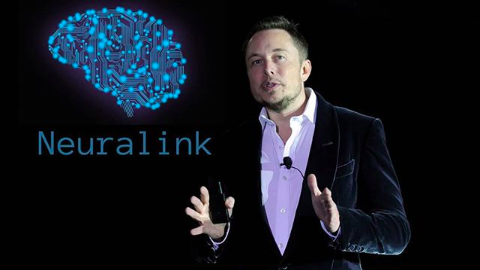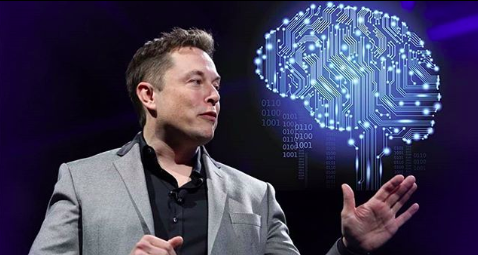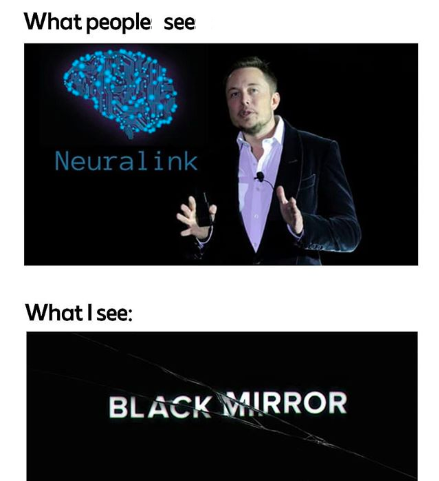Culture March 25, 2020
Saying no to Neuralink? It's a no brainer.


There will always be people that are reluctant to change and innovation. Bummer, I know – but nothing new. If such reluctance stems from fear of the unknown, then it’s generally a really bad excuse to not be progressive. When the company Neuralink innovates a wireless brain implant that theoretically can read your mind, however, reluctance and skepticism are justifiable in this case.
At a press conference on the 16th of July 2019, Elon Musk revealed the progress of his startup Neuralink. The company has created a chip, or an implant, that can connect the brain to computers via Bluetooth. It consists of very thin threads that can be implanted deep into the train by a robot. Initially, the implants are planned to be applied medicinally, for instance, to help restore a person’s cognitive abilities including speaking, memorizing, and physically moving. While the intentions are good, I believe such an innovation will be far from harmless. Here’s why.
What Elon Musk refers to as “data” now equals our identity; our minds, memories, thoughts, and fundamental abilities. It’s without a doubt difficult to grasp what that actually implies, let alone what the consequences of it might be. After all, we’re connecting our brain to a computer, allowing it to read and store information that we, in fact, might want to keep to ourselves.

The fact that we likely don’t know what we might get ourselves into is the most dangerous part. I mean, let’s face it – humans are lazy, not to mention that we do have limited time and energy. So will we educate ourselves and dive deep into what using Neuralink actually implies in terms of data gathering, storage, and in what ways our brain could be controlled? Probably not, unless we’re genuinely interested.
For example, since the enforcement of the European law GDPR in 2018, companies have to inform the consumer of how their data is used. These companies also need every person’s consent to gather and save their personal data in a database, which is done through cookies. So when visiting a website, for instance, we’re sometimes asked whether or not we accept cookies. But if we accept, do we actually know what we’re consenting to? Most likely, we don’t. Generally speaking, we either don’t know or don’t care to look into it any further. However, that doesn’t mean that we actually want that website to gather, and eventually sell, data about us.
Similarly, using Neuralink for medical reasons might be an easy choice if it can help us or a loved one. We need to be attentive though, as we actually give companies access to our brain; the key to our existence.


The potential of Neuralink actually goes beyond medical applications. As reported by CNBC, Musk said that people could communicate with each other through a kind of telepathy using Neuralink. While it’s amazing and futuristic with a capital F, it could fundamentally change the way in which we interact with each other – for the worse. Would it be the beginning of the end of verbal communication?
“Oh come on, that’s silly!” you might think. But is it, though? An illustrating example to prove my point is social media. Let’s take a step back and review the development that has taken place during recent years.
While there are many awesome things about social platforms such as Facebook and Instagram, social media is far from harmless. On the bright side, it has brought celebrities and businesses closer to their audience and enabled people all over the world to keep in touch. On the flip side, people have become addicted to social media and find themselves staring at a screen for numerous hours too many. This has reportedly led to depression, sleeping problems, anxiety, stress, and more. It has also lead to teens preferring texting over meeting and talking to others in person, according to a 2018 survey with 1,141 teens aged between 13-17. In 2012, it was the other way around.


Even though this wasn’t the intention of social media, these are negative – and perhaps unanticipated – consequences of it. It has fundamentally changed our behavior and ways of interacting with one another. I believe Neuralink will do this to a new extreme if it enables telepathy as a means of communication. Such an evolution would give us yet another reason to not speak with each other and further increase social isolation. I don’t think that’s the company’s intention, but we evidently cannot always control the direction in which things are going.
With all this in mind, the bottom line is that it’s hard for us to anticipate the consequences of groundbreaking innovation. The risk for unforeseen, negative outcomes due to technology is particularly high when entering uncharted waters, which the TV-series “Black Mirror” successfully – and cynically – portrays. In fact, several episodes feature a chip that connects technology to a human’s mind, showing how such an innovation can backfire. It’s certainly dystopian, yet potentially accurate of what awaits if such technology enters into our reality.

